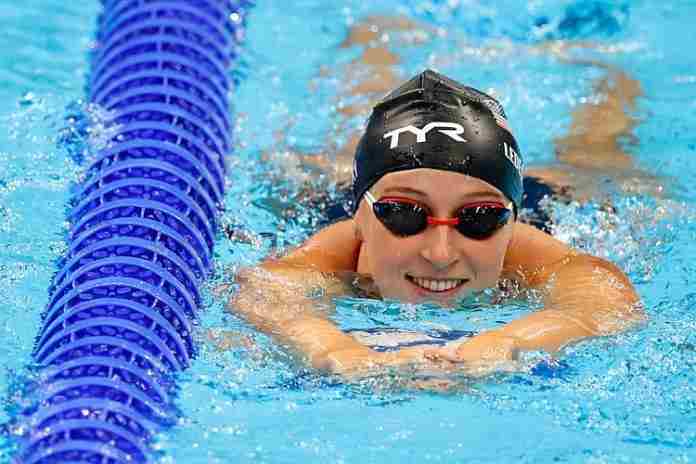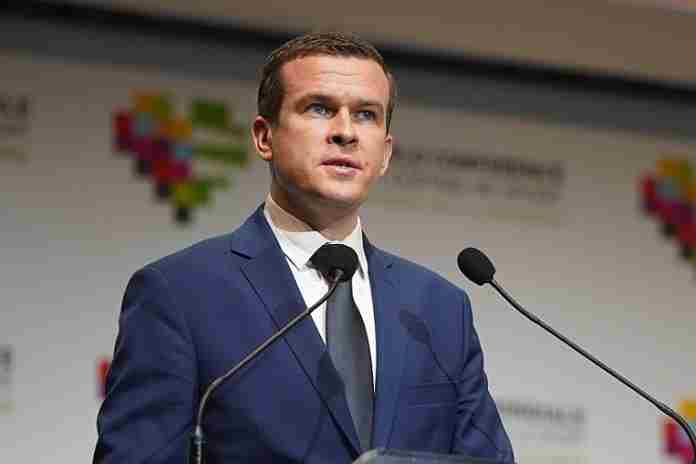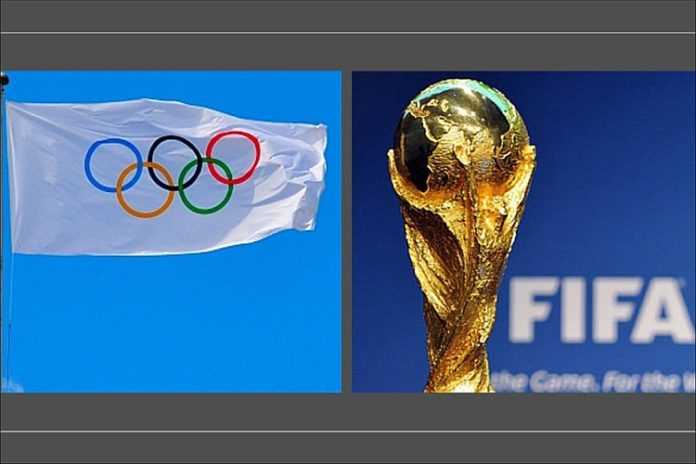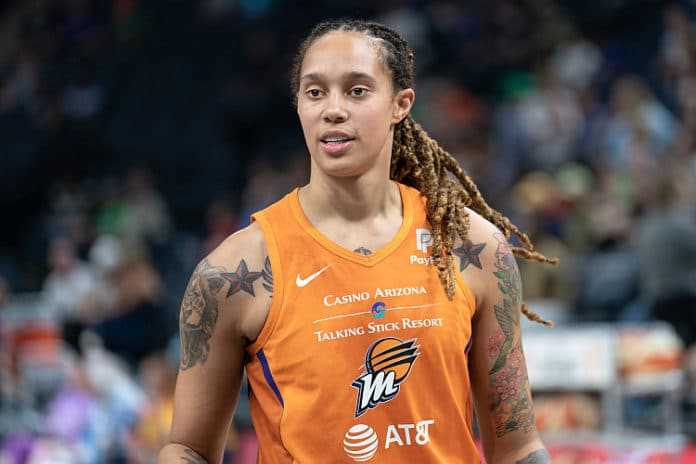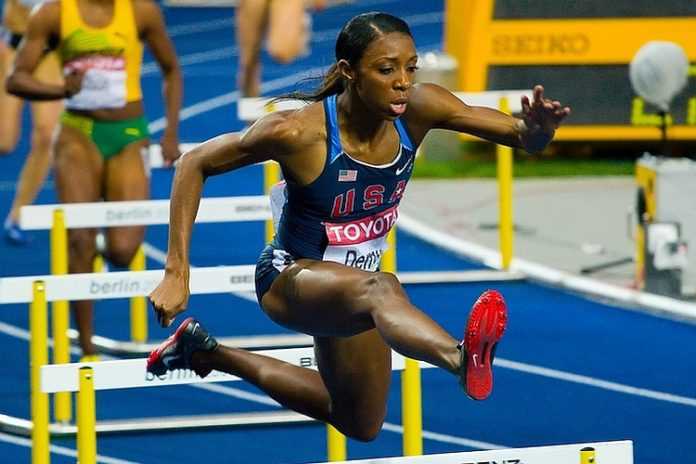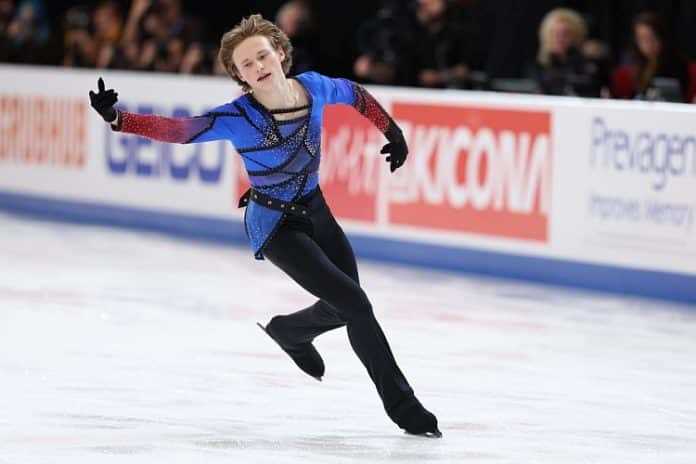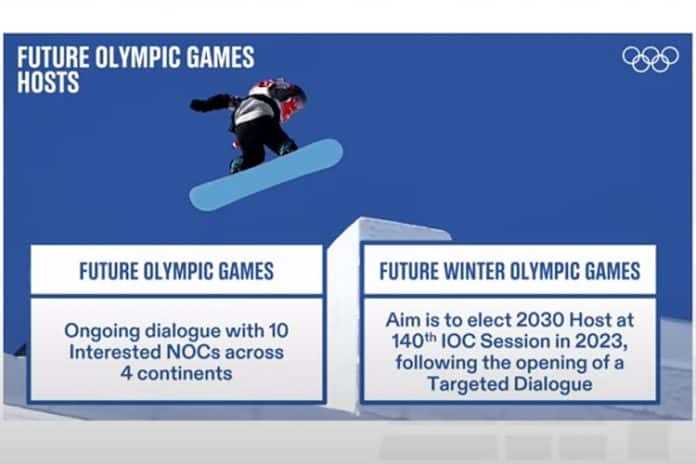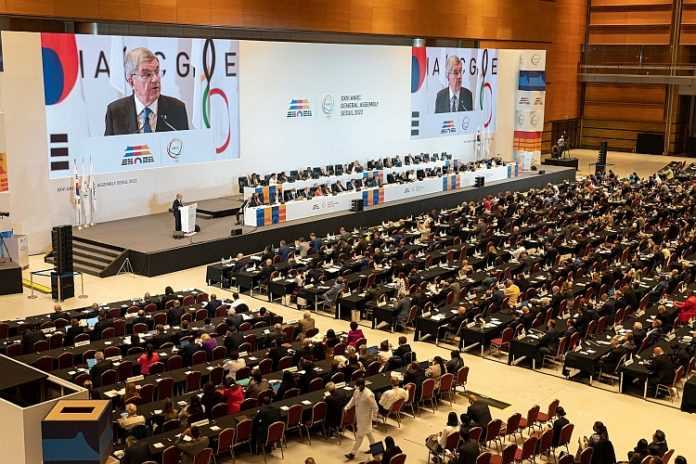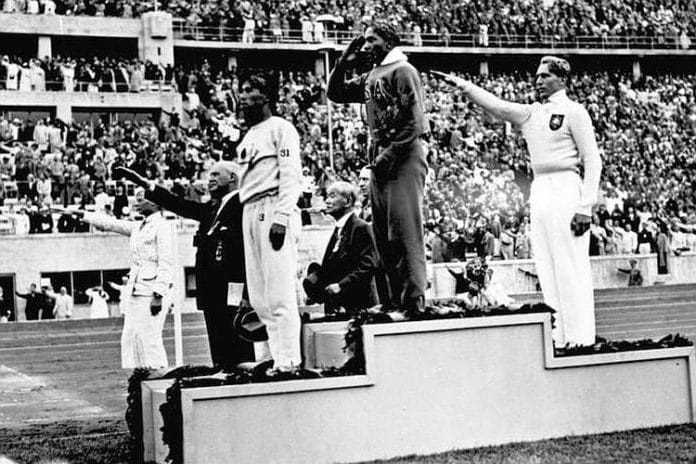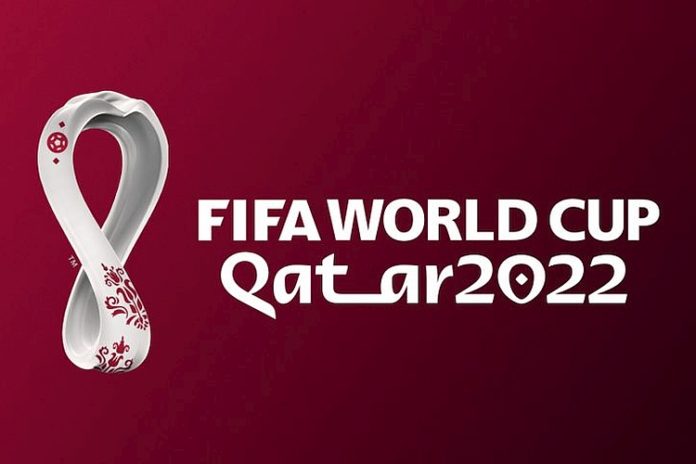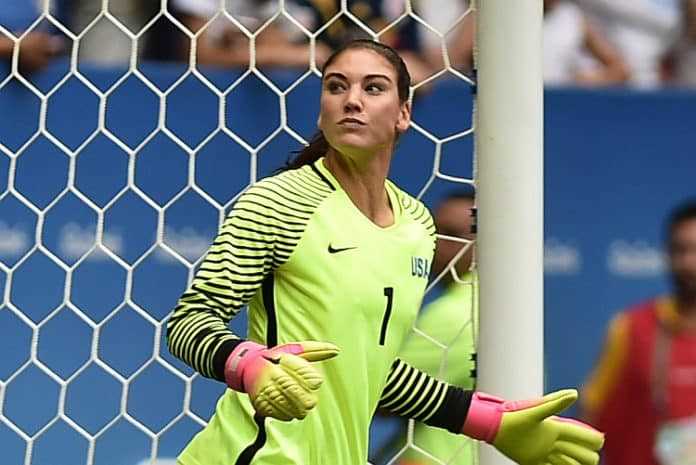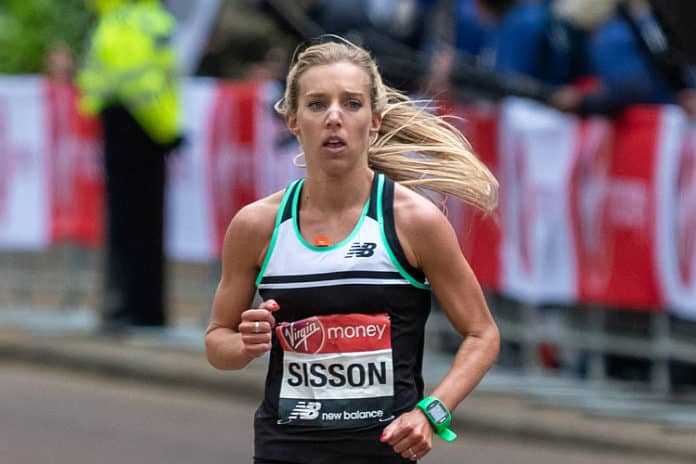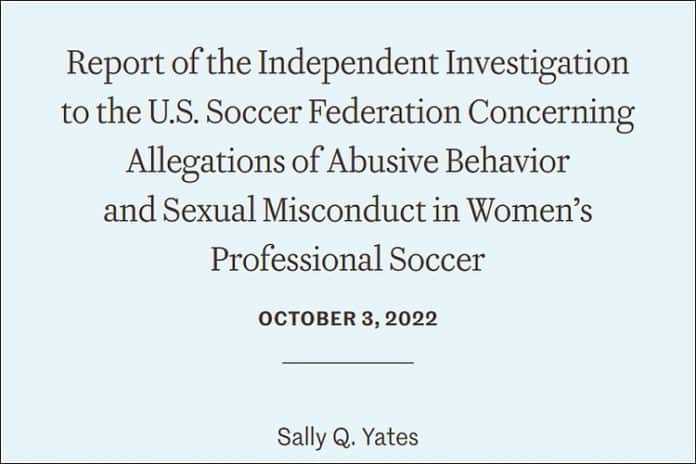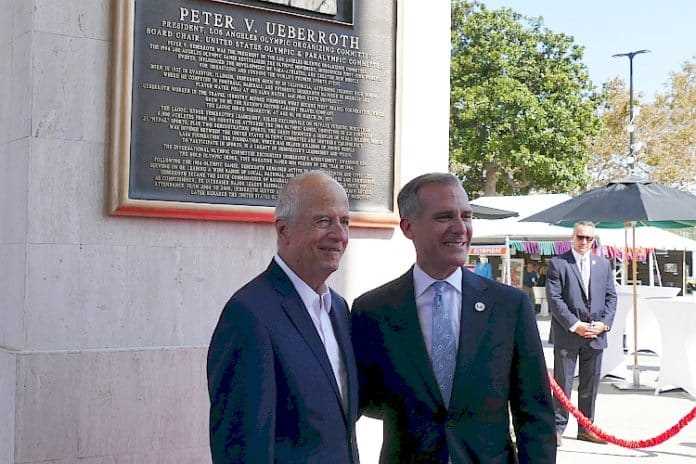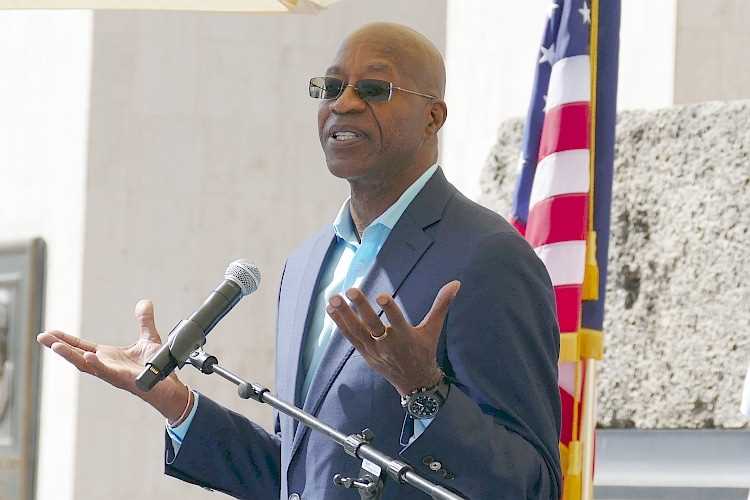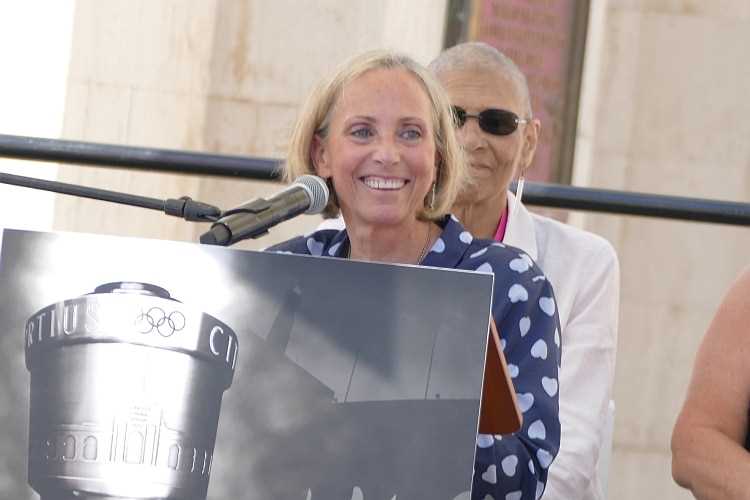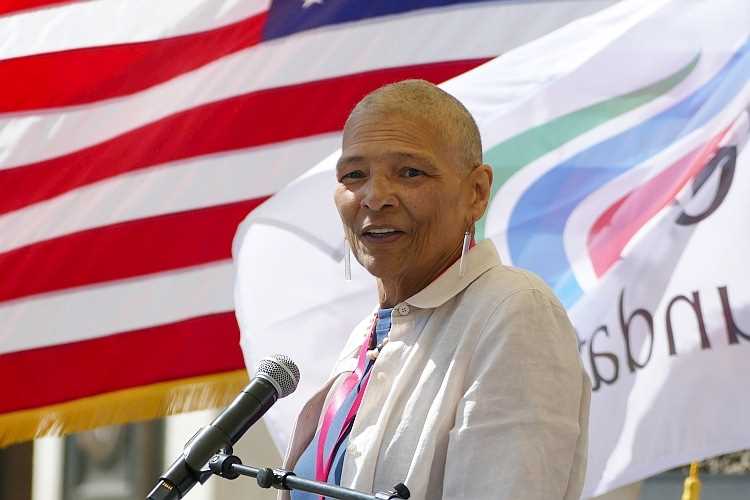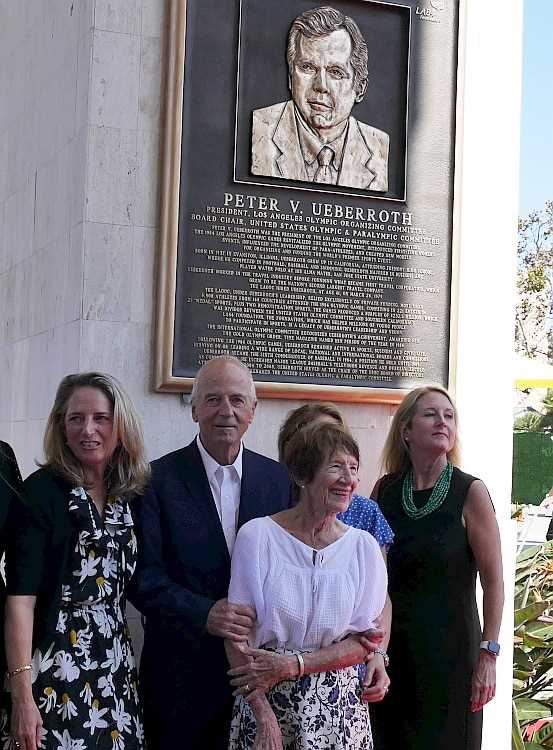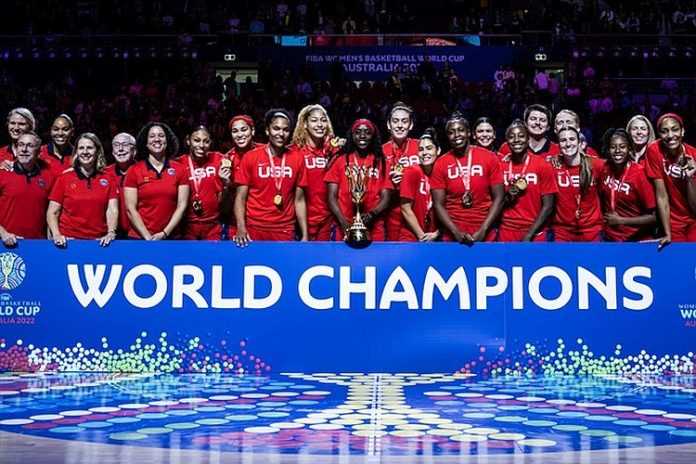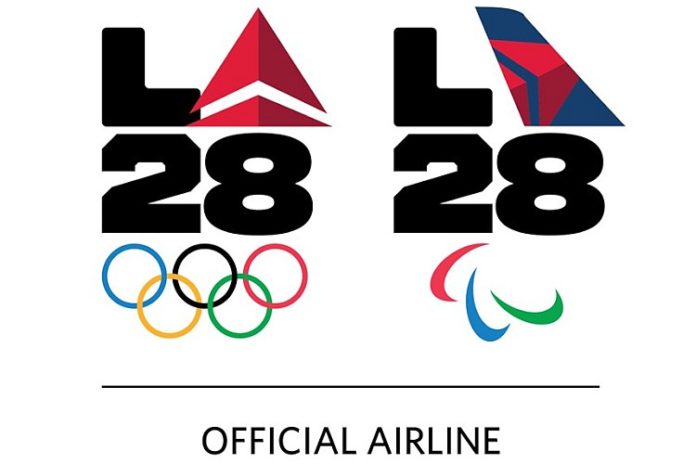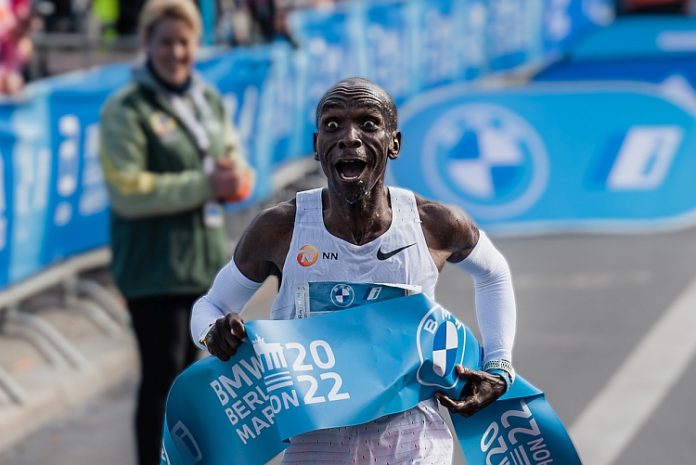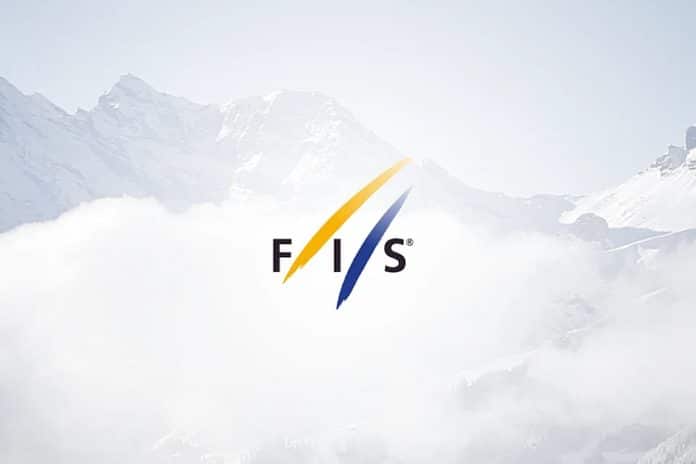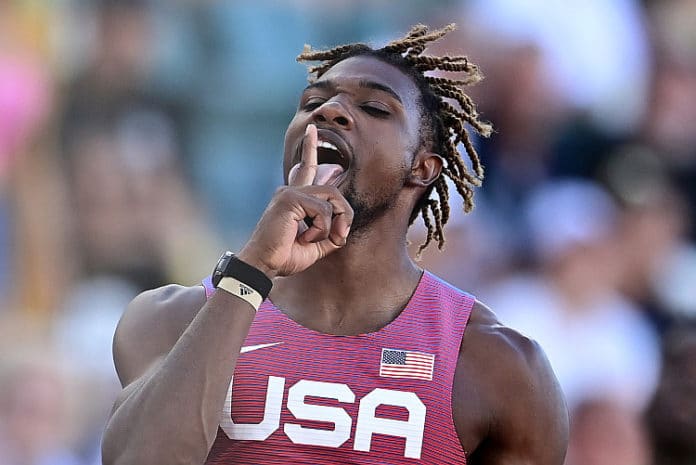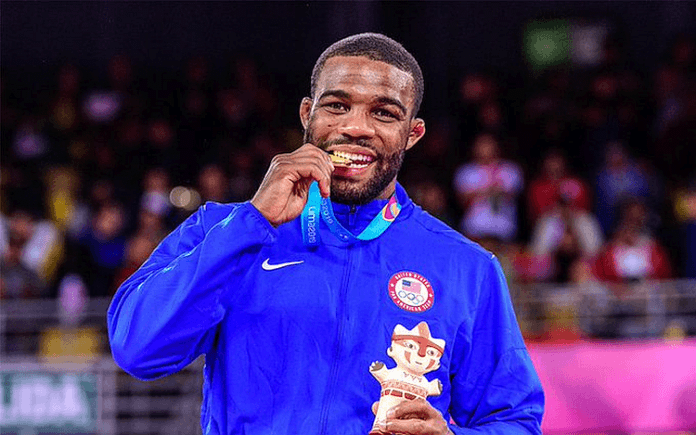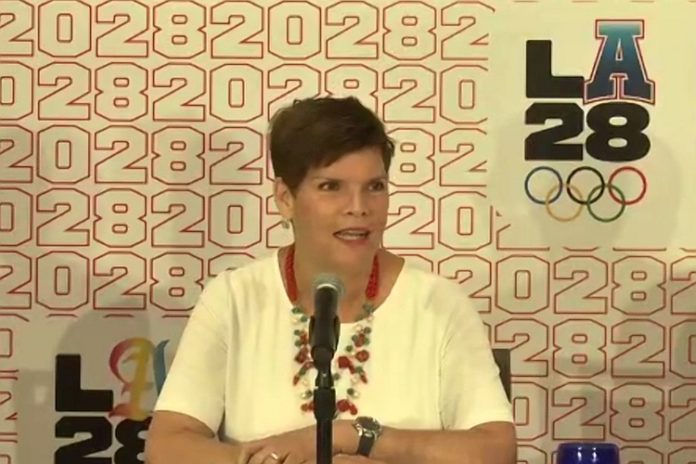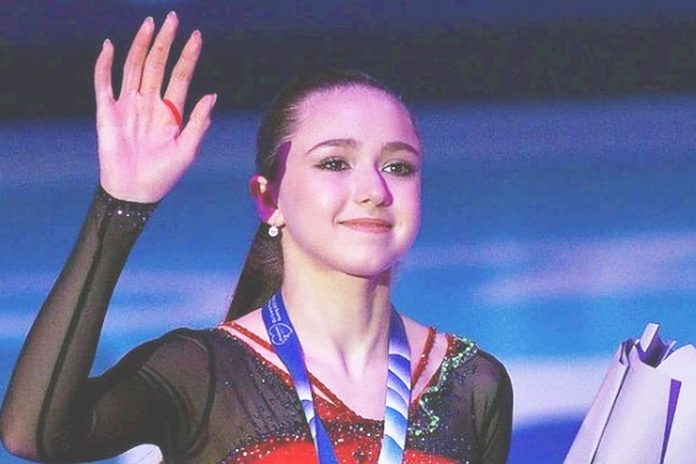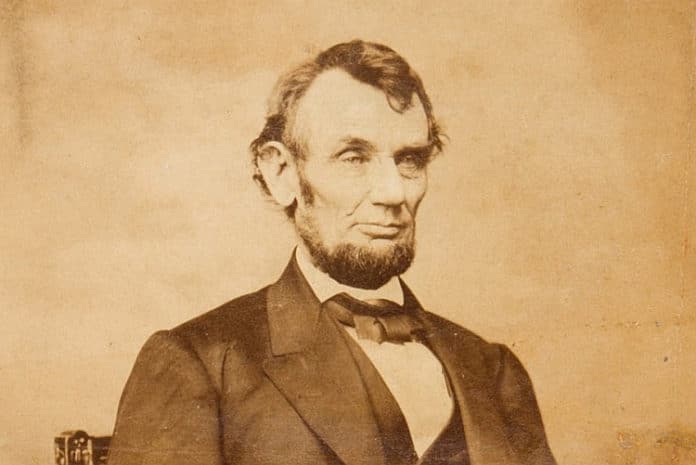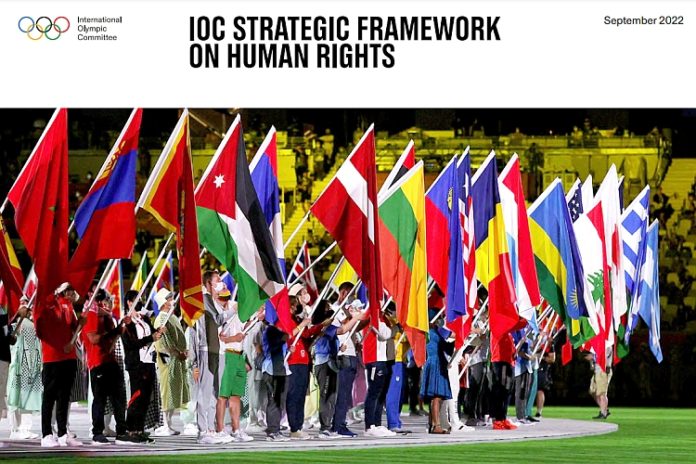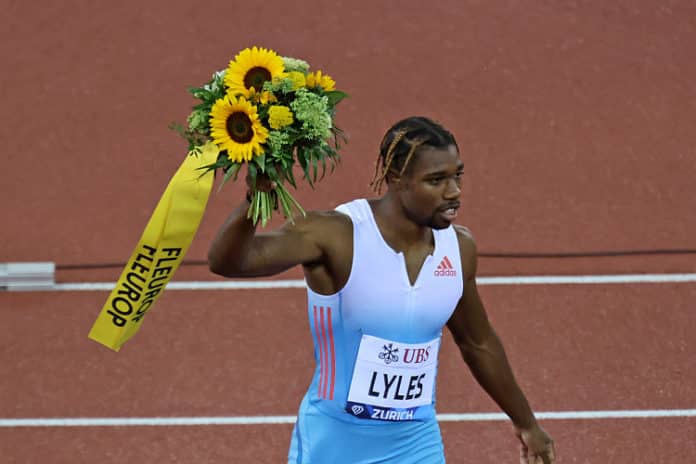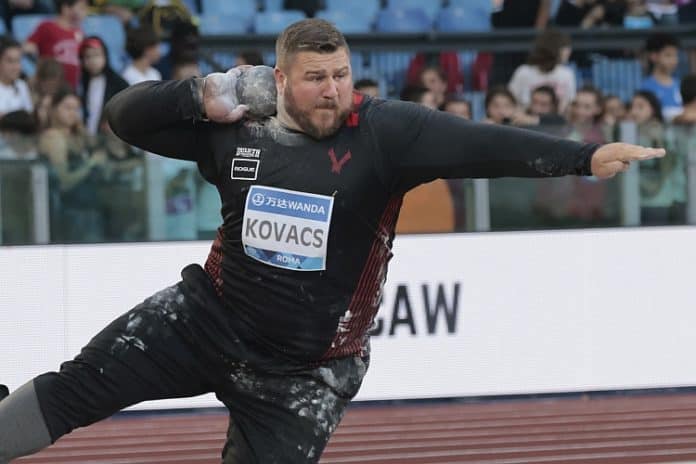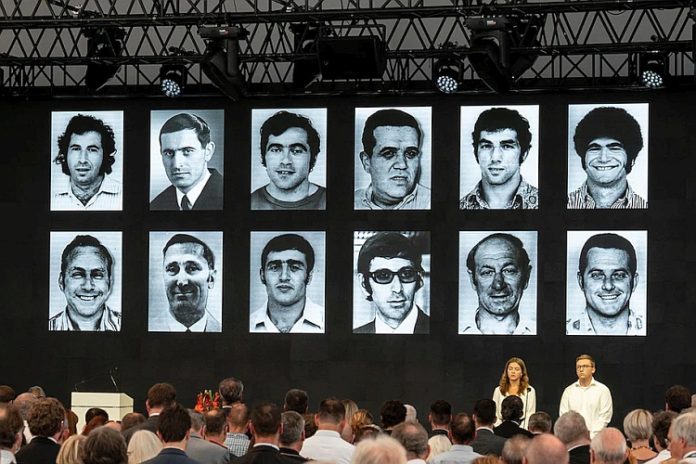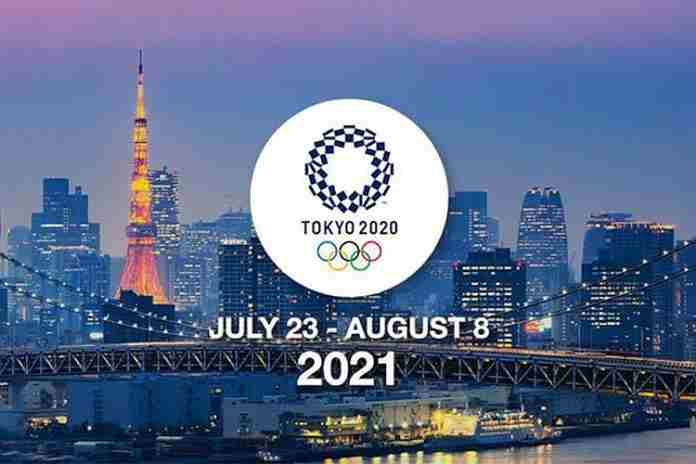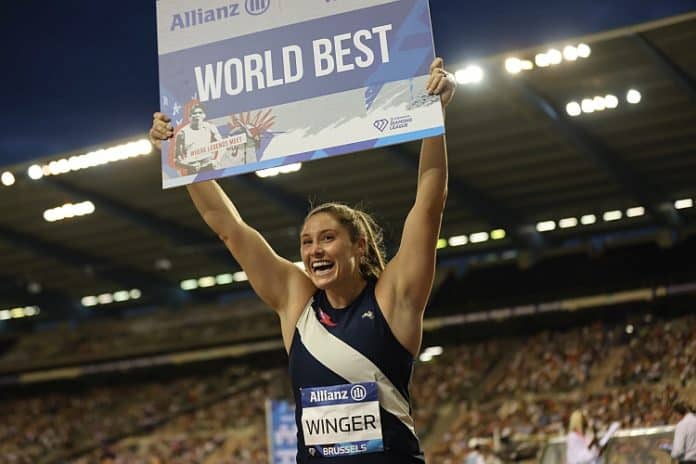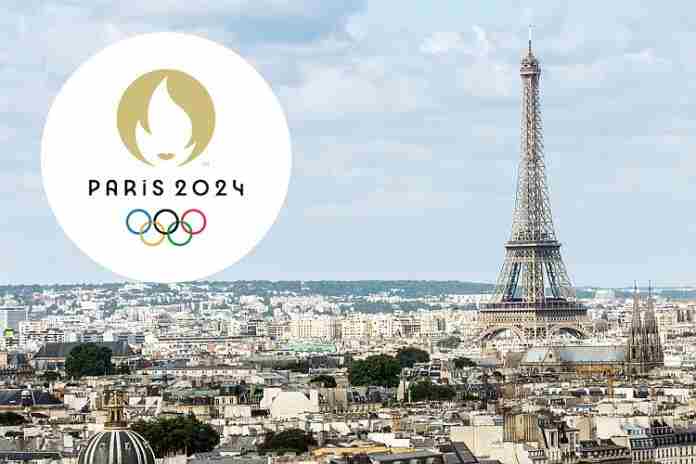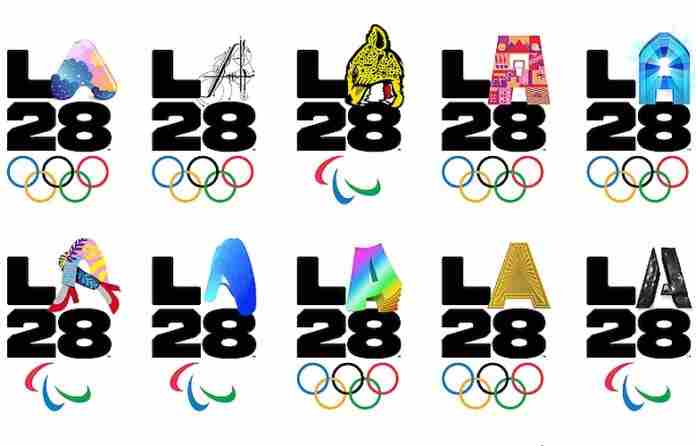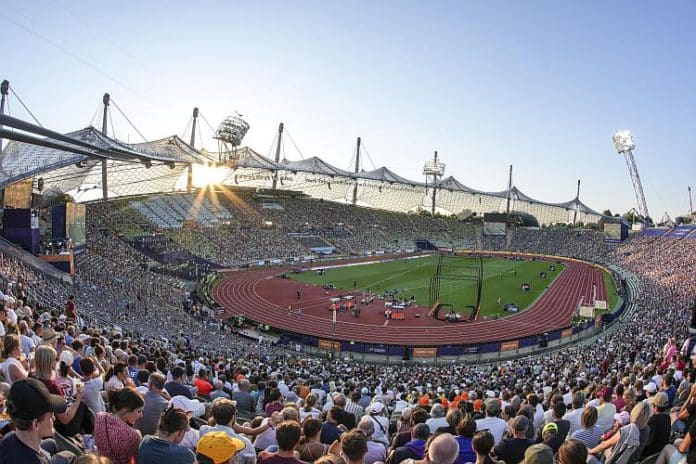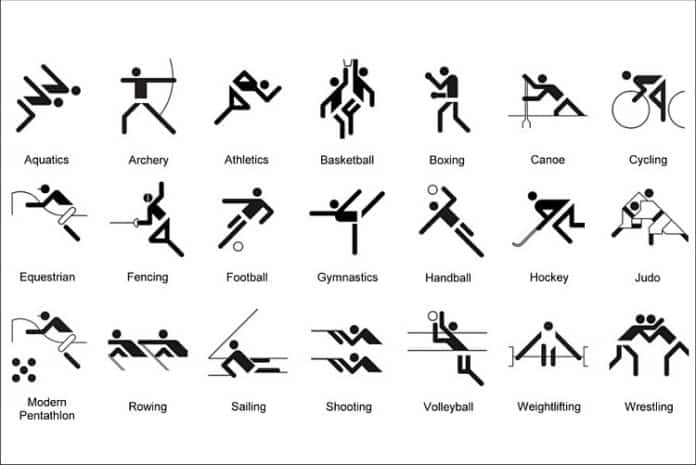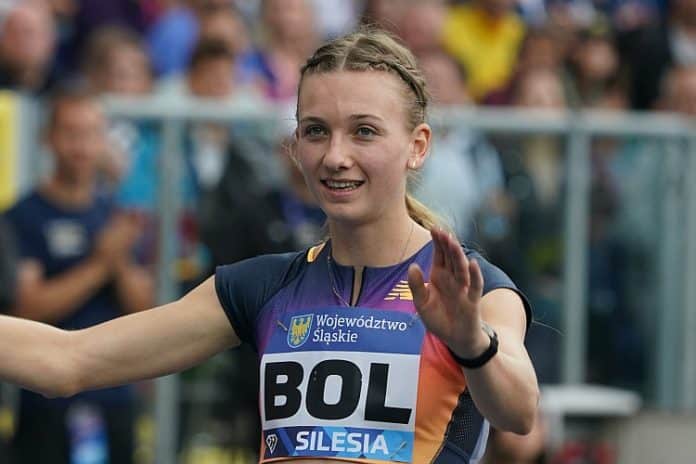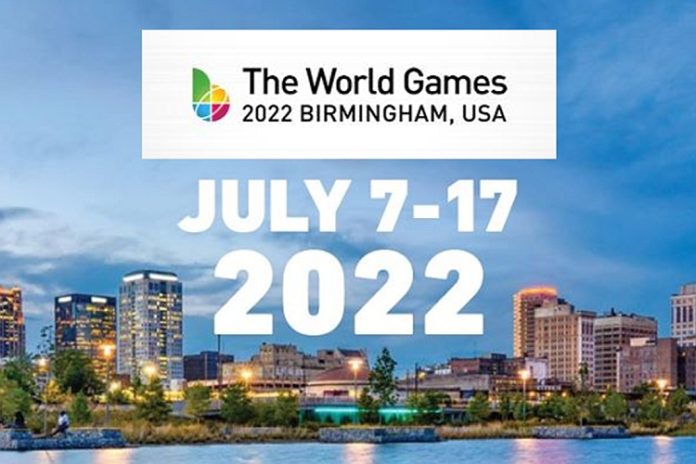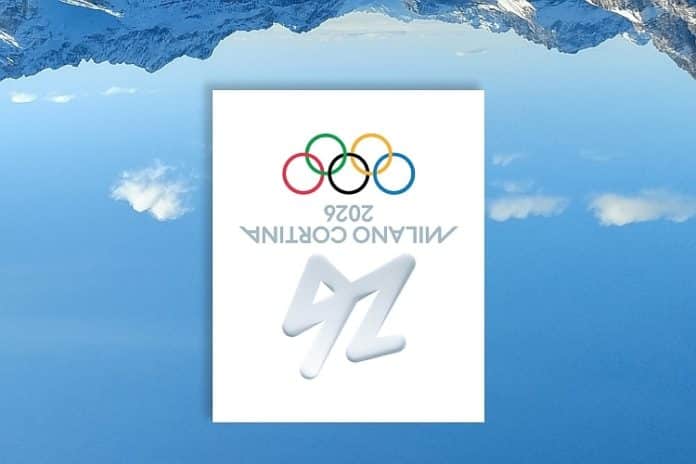★ The Sports Examiner: Surveying, monitoring and explaining the key competitive, economic and political forces shaping elite sport and the Olympic Movement. ★
★ Want TheSportsExaminer.com insights for your team? Yes! Click here for info on speaking, research and consulting from editor Rich Perelman. ★
★ To get our new, exclusive 951-event International Sports Calendar for 2022-23 and beyond, click here! ★
★ To get The Sports Examiner by e-mail: sign up here! ★
≡ THE 5-RING CIRCUS ≡
1. Vancouver 2030 bid team wants to talk to Province
2. FIFA World Cup: evacuations, Infantino sees worldwide benefits
3. Sullivan Award 2022 nominees include 13 Olympians, 11 gold medalists
4. Plush resigns as USA Curling chief amid NWSL report blowback
5. Tokyo 2020 winner Choong rips UIPM’s “shambolic mismanagement”
The Canadian Olympic Committee and the leaders of the four First Nations leading the bid for a 2030 Olympic Winter Games in Vancouver decried the decision of the British Columbia government not to support the bid, especially not with more discussion. The bid may be ended, but there will be political ramifications into the future. The upcoming FIFA World Cup in Qatar has brought enormous scrutiny to the country, with Reuters reporting that workers were evacuated from a dozen or more buildings in Doha, sometimes on just a few hours notice. FIFA President Gianni Infantino (SUI) told a conference in Saudi Arabia than bringing the event to the Middle East will “help to get more mutual understanding between people of different cultures and backgrounds.” The 19 nominees for the 2022 AAU’s Sullivan Award have been released, with 12 Olympians, including 11 gold-medal winners. Further fallout from the Yates Report on abuse in the National Women’s Soccer League, as Jeff Plush – a former NWSL Commissioner – resigned as chief executive of USA Curling. Tokyo Olympic men’s modern pentathlon champion Joe Choong (GBR) called for a change in the leadership of the Union Internationale de Pentathlon Moderne, alleging mismanagement that could cost its place on the Olympic program for 2028.
At the FINA swimming World Cup in Toronto, American distance star Katie Ledecky destroyed the short-course world record in the women’s 1,500 m Freestyle and almost broke the 800 m record en route!
1.
Vancouver 2030 bid team wants to talk to Province
Thursday’s announcement by British Columbia’s Minister for Tourism, Arts and Culture, Lisa Beare, that the province will not support a bid for the 2030 Olympic Winter Games was met with frustration by the four First Nations and the Canadian Olympic Committee.
The Vancouver bid was framed as a vehicle for continuing reconciliation with First Nations, with the bid effort being led by the Lil’wat, Musqueam, Squamish and Tsleil-Waututh. Said Squamish Nations councilor Wilson Williams:
“Our canoe is stalled right now. Truly, if we don’t get the provincial or federal government in the canoe, we are still here. We aren’t going anywhere. And the power of us working together, it’s not going away.”
Williams acknowledged, “No support from the governments would kill the bid. But we’re saying that we’re still here to have that conversation.”
Tsleil-Waututh Nation Chief Jen Thomas told CTV News, “We felt we weren’t respected enough to be a part of this decision with the province. … For true reconciliation, we have to find a way to work together on this journey and right now we just took 10 steps backwards.”
Beare’s comments on the bid were framed in terms of cost:
“The current bid is cost estimated at C$1.2 billion and an additional billion dollars in risk. And when we measured that against our government’s priorities we believe we need to focus on people.”
Tricia Smith, head of the Canadian Olympic Committee, stressed that British Columbia is being asked to support 17% of the total Games cost, while a private organizing committee would cover 52%:
“We need to have some clarification on those numbers and that’s all we’re asking for. Let’s get in a room. If it doesn’t make sense at the end of the day, it doesn’t make sense and we don’t go forward.”
The Canadian Press reported that a request by the Four Nations to meet with incoming British Columbia Premier David Eby has been turned down.
Without Vancouver, the remaining bids for 2030 are from Salt Lake City in the U.S. and Sapporo in Japan. The International Olympic Committee expects to target one city as its preferred host by the end of the year.
2.
FIFA World Cup: evacuations, Infantino sees worldwide benefits
The tumult of the upcoming FIFA World Cup in Qatar continues, with Reuters reporting on Friday:
“Qatar has emptied apartment blocks housing thousands of foreign workers in the same areas in the centre of the capital Doha where visiting soccer fans will stay during the World Cup, workers who were evicted from their homes told Reuters.”
The story noted that a dozen or more buildings were evacuated, in one case with two hours notice before the doors were locked. The Qatar government told the news service that those evicted have been “rehoused in safe and appropriate accommodation” and that the removals were not related to the World Cup, but to long-term plans for areas of Doha.
¶
Last Thursday, FIFA President Gianni Infantino (SUI) made an appearance by video at the VI Future Investment Initiative in Riyadh (KSA):
“This FIFA World Cup 2022 is already having a huge impact on the Middle East. …
“We will have the opportunity for millions of people to discover a new part of the world: the Gulf, the Arab world. New people, rich culture, welcoming, new customs.
“And on the other side, it is also an opportunity for Qatar and the whole [Gulf] region to present itself to the world in another light and get rid, I think, once and for all, of some of the prejudice that sadly still exists. It will definitely help to get more mutual understanding between people of different cultures and backgrounds, I am convinced of that.
“And despite some critics who don’t know what really happens, we had 23 million ticket requests – a record – over three million tickets were sold, and we’ll be sold out. We’ll have five billion people watching on TV, and when it comes to Qatar itself – you were asking about the impact – some changes, some real changes have already happened.”
Infantino also added a unique view on the impact of football and the World Cup on healthy living, while smiling broadly:
“Football is joy … and we also know that, actually, FIFA is [an] official happiness provider, since over 100 years. And happiness is, obviously, one of the best medicines for all sorts of diseases as we know as well.
“So, I think, already by bringing the world together in the Gulf region, through the World Cup … enjoying and being happy and showing to the world – a world which is more and more aggressive, and tense – that, yes, people can live together whether they come from east, from west, from south, from north, they can stay together, they can enjoy together, they can feel together the same passion and for at least one month, show to the world that humanity can live in peace together.”
¶
Also last week, the Security and Safety Operations Committee for the Qatar World Cup completed its leadership and training program, with 32,000 government security officers and 17,000 private-security personnel scheduled to support the tournament.
3.
Sullivan Award 2022 nominees include
12 Olympians, 11 gold medalists
The 92nd AAU Sullivan Award, presented annually to “the outstanding amateur athlete in the United States,” will be awarded on 8 December in Santa Monica, California, with the nominees announced last week.
The 19 nominees include 12 Olympians and 11 gold-medal winners (six won golds at Tokyo 2020 and four at the Beijing 2022 Winter Games):
Olympians:
● Jordan Burroughs, wrestling
● Nathan Chen, figure skating
● Allyson Felix, track & field
● Kallie Humphries, bobsled
● Erin Jackson, speed skating
● Sydney McLaughlin-Levrone, track & field
● Chloe Kim, snowboarding
● Katie Ledecky, swimming
● Elana Meyers Taylor, bobsled
● Carissa Moore, surfing
● Athing Mu, track & field
● Maddie Musselman, water polo
Non-Olympians:
● Jocelyn Alo, softball (Univ. of Oklahoma)
● Aliyah Boston, women’s basketball (Univ. of South Carolina)
● Sophie Jaques, women’s ice hockey (Ohio State Univ.)
● Jaime Jaquez Jr., men’s basketball (UCLA)
● Ivan Melendez, baseball (Univ. of Texas)
● Logan Wisnauskas, men’s lacrosse (Univ. of Maryland)
● Bryce Young, football (Univ. of Alabama)
First awarded in 1930, the 2021 winners were gymnast Simone Biles and swim star Caeleb Dressel.
Fan voting is available through 9 November, with a maximum of one vote per day
4.
Plush resigns as USA Curling chief amid NWSL report blowback
Under pressure from a report that he did not act decisively on reports of player abuse during his tenure as Commissioner of the National Women’s Soccer League, Jeff Plush resigned as chief executive of USA Curling on Friday.
The federation’s statement included:
“The USA Curling Board of Directors has unanimously accepted Jeff Plush’s resignation. …
“[W]e are pleased to announce the appointment of Dean Gemmell as the Interim CEO of USA Curling. … A former national champion, Dean has served as the President of his home club in New Jersey, led clinics and camps for juniors and adults, worked closely with other [U.S. National Governing Bodies] as our sport’s athlete representative, and has worked most recently as our Director of Development.”
Plush was NWSL Commissioner from 2014-17 and was hired by USA Curling in 2020. The Yates Report, commissioned by the U.S. Soccer Federation, was delivered on 3 October and noted Plush’s inaction when informed of abuse accusations against then-Portland coach Paul Riley (GBR) in 2015, and did not respond to requests from Yates for information or an interview.
USA Curling’s Board of Directors had cleared Plush; in a 13 October statement, the Board stated it had initiated an investigation into the Yates Report findings concerning Plush and was “confident in Jeff’s ability to continue as an effective leader of the organization.”
However, members of the federation’s Diversity, Equity and Inclusion Task Force asked for Plush to resign last week, citing the Yates Report.
There was also controversy concerning the 21 October decision during the Members Assembly to confirm the Board’s vote “to remove the Grand National Curling Club (GNCC) as a member region due to its failure to uphold USA Curling bylaws regarding membership compliance.”
5.
Tokyo 2020 winner Choong rips UIPM’s “shambolic mismanagement”
Britain’s Joe Choong was the Tokyo 2020 Olympic gold medalist in the men’s modern pentathlon, the country’s first-ever medal in the men’s competition, and he intends to defend his title at the Paris 2024 Games. But he told a news conference in London on Monday that he fears for the Olympic future of his sport, not currently on the program for the Los Angeles 2028 Games; in a written statement he added:
“The [Union Internationale de Pentathlon Moderne] has caused our sport to be removed from the Olympic program through its shambolic mismanagement over the last two decades. In this period they have failed to modernise our riding discipline, and have made weak attempts to promote the sport beyond its current audiences. They then sought to introduce a completely unrelated fifth discipline without proper consultation or testing with the very athletes upon which the sport depends.
“If we don’t resolve this now, we will see most athletes and support staff around the world lose their livelihoods but, worse, we’ll lose the sport we all love.”
Choong is backing former Australian penathlete Alex Watson (1984-88-92) and the competition manager for the sport at the Sydney 2000 Games to replace current UIPM President Klaus Schormann (GER, first elected in 1993). At Monday’s news conference, Watson called for Schormann to resign, with the idea that he could be elected.
On Friday, the Pentathlon United athlete group posted an 11-slide “The pathway back to the Olympics” presentation, criticizing the federation’s current leadership, dissecting the IOC’s directives and comments on the sport’s situation, and making the case that a reformed riding discipline is better than the currently-proposed obstacle course program, concluding:
“New riding is our best chance to get back to the OG – we can meet and exceed IOC requirements.
“UIPM lost our place in the OG. They have misled us for too long. It is time for change. It is time for new leadership. We thank President Schormann for his past service and contribution to pentathlon. But it is time for him to go.”
The UIPM Congress is scheduled for 12-13 November 2022. Expect much more from both sides over the next two weeks.
≡ WORLD CHAMPIONSHIPS ≡
● Football ● Spain won its second consecutive FIFA Women’s U-17 World Cup with a 1-0 victory over Colombia on Sunday, as striker Laia Mertrat’s shot caromed into the goal after hitting defender Ana Guzman for an own goal.
The final and the third-place match were played in Navi Mumbai (IND), and Spanish midfielder Vicky Lopez was awarded the Golden Ball as the top player in the tournament. Nigeria won the bronze medal by defeating Germany, 3-2 on penalty kicks, after a 3-3 tie in regulation time.
● Gymnastics ● The U.S. women led all qualifiers in an impressive showing during the initial sessions of the 2022 FIG World Artistic Championships in Liverpool (GBR).
The American squad of Shilese Jones, Jade Carey, Leanne Wong, Jordan Chiles and Skye Blakely scored 167.263 points, nearly three points ahead of Great Britain (164.595), with Brazil third (163.563). The top three finishers in the team final will qualify for Paris 2024.
In the individual All-Around, Brazil’s Olympic runner-up Rebeca Andrade was the leading qualifier at 57.332, trailed by Jones (55.766) and Carey (55.132). Chiles finished 12th and would have qualified for the final except for the limit of two per country.
In the apparatus qualifying, Carey and Chiles were 1-2 at 14.483 and 14.316, with Wong ninth, averaging 13.433 on her two vaults. China’s 2021 Worlds bronze medalist Rui Luo led on Uneven Bars (14.900) with Belgium’s Tokyo gold medalist Nina Derwael second (14.700) and Andrade third (14.666); Jones made the final in fifth (14.566).
China’s Yushan Ou led the qualifying on Beam (13.900) with Blakely second (13.733) and Jones the first reserve in 10th (13.200). Brazil’s Flavia Saraiva and Andrade were 1-2 on Floor (both 14.200), with Chiles fourth (14.100), Tokyo Olympic champ Carey fifth (14.066), and Jones sixth (13.800), but not allowed to advance as the third from her team.
The men’s qualifying will be held on Monday, followed by the women’s Team final on Tuesday.
● Rugby ● The 15-a-side Women’s Rugby World Cup is down to its final four in New Zealand, with the hosts, France, England and Canada still in contention.
In the quarterfinals, France (3-1) clubbed Italy, 39-3, to advance, while New Zealand (4-0) ran by Wales, 55-3. England (4-0) had no trouble with Australia, 41-5, and Canada (4-0) dispatched the U.S., 32-11.
The remaining games will be played in Auckland, with the semis on 5 November and the final and third-place matches on the 12th.
● Sailing ● The 470 Class World Championships followed the change in the protocol for the 2024 Paris Olympic Games and held a mixed-team race for its 2022 World Championships off Sdot Yam (ISR), after holding separate men’s and women’s championships from 1985-2021.
The German pair of Luise Wanser and Philipp Autenreith were clear winners, taking three races on the way to a net of 71 points. Wanser had been sixth in the women’s 470 class in Tokyo, with Anastasiya Winkel.
Spanish veteran Jordi Xammar – the Tokyo 2020 Olympic men’s bronze medalist – won silver with Nora Brugman (82 points) with France’s Camille Lecointre (bronze winner in Rio and Tokyo) and Jeremie Mion winning the bronze (85).
≡ PANORAMA ≡
● World University Games ● The II FISU Americas Games concluded in Merida (MEX) on 26 October, with the hosts dominating the medal table. About 1,000 athletes from 13 nations competed in 11 sports.
Mexico won 182 total medals, with 89 golds, 52 silvers and 41 bronzes. The U.S. was second at 66 (13-30-23), followed by Brazil (20-12-13).
● National Games ● Worth noting are the first Saudi Games, which opened on 21 October in Riyadh (KSA), with about 6,000 athletes competing in 45 sports and a prize pool of $53 million U.S.!
Medal winners in each event are to receive one million Riyals for gold (~$266,170 U.S.), SAR 300,000 for silver (~$79.851 U.S.) and SAR 100,000 for bronze (~$26,617 U.S.). Wow!
The competitions continue through 7 November.
● Athletics ● “Kenya is in a major doping crisis and it needs to end now. World Athletics needs to suspend Kenya for the foreseeable future.”
That’s from Canada-based Athletics Illustrated on Saturday, quoting Kenyan Sports Cabinet Secretary, Ababu Namwamba:
“Kenya is in the midst of a doping crisis. This year alone, there have been no less than 30 cases of doping which threatens to tarnish the good and shining image of Kenya as a sporting nation.”
The site further noted:
“Imagine if 30 Canadian, British, Australian, or American athletes were suspended in a 10-month stretch. For many countries, the athletics program would be decimated. Currently, there are approximately 70 athletes from Kenya serving suspensions for reasons related to anti-doping.”
Any move toward suspensions would have to come from World Athletics, which has had the Russian Athletics Federation on suspension for its state-sponsor doping program since 2015, under the watchful eye of a specially-commissioned task force. No such review group has been formed for any other country, yet.
● Badminton ● China won two titles at the 2022 French Open in Paris, with Bing Jiao He taking the women’s title from Spain’s Rio 2016 champion Carolina Marin (16-21, 21-9, 22-20) and Si Wei Zheng and Ya Qiong Huang winning the Mixed Doubles over surprise Dutch finalists Robin Tabeling and Selena Piek, 21-16, 14-21, 22-20.
The all-Danish men’s Singles final saw top-seeded Viktor Axelsen won in straight sets over Rasmus Gemke; India’s Satwiksairaj Rankireddy and Chirag Shetty win the men’s Doubles and Malaysia’s unseeded Pearly Tan and Muralitharan Thinaah take the women’s Doubles victory, upsetting fourth-seed Mayu Matsumoto and Wakana Nagahara (JPN).
● Figure Skating ● Japan dominated the 2022 edition of the Skate Canada International stop of the ISU Grand Prix, held this year in Mississauga, Ontario, winning three of four events with veterans and newcomers.
Two-time Olympic medalist Shoma Uno won his third Skate Canada International title, overtaking teammate Kao Miura in the Free Skate by 183.17-171.23 to win the men’s event, scoring 273.15 to 265.29 for Miura. Camden Pulkinen was the top American in fifth (219.06).
Rinka Watanabe, 20, made an even more dramatic impression in her Grand Prix debut, standing only sixth after the Short Program, but winning the Free Skate at 134.32 to take the victory with 197.59 points. American Starr Andrews, 21, also flew up the standings, from fifth to second after scoring 126.57 in the Free Skate with a lifetime best 191.216 score. Young You (KOR) was third (190.15) and American Ava Marie Ziegler finished fourth (186.76).
World Championships silver medalists Riku Miura and Ryuichi Kihara posted Japan’s first-ever Pairs win at Skate Canada, scoring 212.02 to beat Americans Emily Chan and Spencer Akira Howe, who posted their best-ever score at 186.48.
Canada’s Piper Gilles and Paul Poirier, the 2021 Worlds bronze medalists, won their third straight Skate Canada Ice Dance title, taking both the Rhythm Dance and the Free Dance for a 215.70 point total. Britain’s Lilah Fear and Lewis Gibson were second (209.18); the top American finish was in fourth by Caroline Green and Michael Parsons (194.19).
The Grand Prix tour moves to Europe next week for the Grand Prix de France in Angers.
● Short Track ● Dutch women dominated the first ISU World Cup of the season, in Montreal (CAN), with Beijing Olympic gold medalists Xandra Velzeboer and Suzanne Schulting winning two events apiece.
Velzeboer, an Olympic relay gold winner and 2022 World Champion at 500 m, won the 500 m in 42.123 and the first 1,000 m race in 1:29.070. Schulting, who won two golds, a silver and a bronze in Beijing, won the second 1,000 m (1:31.717) and the 1,500 m final, in 2:31.052. Korea’s Min-jeong Choi, silver medalist in Beijing at 1,000 m and the 1,500 winner, was second again in the second 1,000 m final. American Kristen Santos-Griswold won the 1,500 m bronze. The Dutch, with Schulting and Velzeboer, won the 3,000 m relay.
Home favorite and Olympic 1,500 m runner-up Steven Dubois won the men’s 500 m (40.345), and teammate Pascal Dion won the second 1,000 m race in 1:23.530. Dubois was second in the 1,500 m to Ji-won Park (KOR), 2:14.152 to 2:14.312. Latvia’s Roberts Kruzbergs took the country’s first-ever Short Track World Cup medal in the first 1,000 m final in 1:23.959. The Koreans won the 5,000 m relay, and the Mixed 2,000 m relay.
● Swimming ● American Freestyle superstar Katie Ledecky was very much the center of attention at the second of three legs at the 2022 FINA World Cup, held in Toronto.
The meet was reportedly only her third career appearance in a 25 m pool, meaning that she was a threat to the record book. And she did not disappoint.
On Friday, she was the top qualifier in the women’s 400 m Free, then led for much of the final before being passed on the final lap by Canadian star teenager Summer McIntosh, 3:52.80 to 3:52.88, the nos. 2-3 times in history (short-course), and an American Record for Ledecky (lowering her own 3:54.06 mark from 2019). Said McIntosh, 16, fourth in this event in Tokyo and already a two-time 2022 World Champion in other events, “I’m a little bit in shock right now.”
Undaunted, Ledecky, 25, came back on Saturday and mauled the women’s 1,500 m Free record, winning in 15:08.24 to take near 10 seconds off the 2019 mark of 15:18.01 by German Sarah (Kohler) Wellbrock. Ledecky passed 800 m in 8:00.58, just missing the short-course world mark of 7:59.34 (Mireia Belmonte/ESP in 2013) en route, but setting another American Record! She won by more than 40 seconds, and said afterwards:
“I didn’t have it as a set goal [to break the record]. I really didn’t know what to expect coming out of this meet, being my first meet of the season, taking most of August off, getting back into training rhythm, didn’t have any type of super preparation for this meet, just wanted to come in and race international swimmers being a meet in North American soil.”
Just 10 minutes after her record swim, Ledecky came back for the 200 m Free final and finished second to Hong Kong star Siobhan Haughey, 1:51.13 to 1:52.31. Ledecky will be back in action, with the 800 m Free world mark in her sights in Indianapolis next week.
The U.S. (31 total) and Canada (21) combined for just more than half of the 102 medals awarded at the meet. Americans won 15 events, with Shaine Casas taking the 100-200 m Backstrokes and the 100-200 m Medleys for four total golds, most in the meet. His win in the 200 m Medley in 1:50.37 was the second-fastest swim all-time (to Ryan Lochte’s 1:49.63 from 2012) and his 48.84 victory in the 100 m Back moves to no. 3 on the all-time short-course list.
Beata Nelson was the women’s 100-200 m Backstrokes and the 200 m Medley and Nic Fink tripled in the men’s 50-100-200 m Breast events. Lilly King won the women’s 200 m Breast and was second in the 50 and 100 m events; Brooks Curry won the men’s 200 m Free; Trenton Julian won the men’s 200 m Fly and Kelly Pash won the women’s 200 m Fly.
Canada’s McIntosh also won the 400 m Medley in World Junior Record time (4:21.49, moving to no. 4 all-time), but teammate Maggie MacNeil, the Tokyo 100 m Fly champ, won the women’s 50-100 m Fly races and the 50 m Back for three golds.
Haughey, who won three events in the first World Cup stop in Berlin, won the 100 m Free as well as the 200 m Free over Ledecky and was third in the 400 m Free. Lithuanian star Ruta Meilutyte doubled in the women’s 50-100 m Breast events.
The other men’s stars included Dylan Carter (TTO), who tripled again in the 50 m Free, 50 m Fly and 50 m Back. South Africa’s Matt Sates won the men’s 400 m Free and 400 m Medley.
¶
Denmark’s Pernilla Blume, the 2016 Rio Olympic winner in the women’s 50 m Free, announced her retirement last Thursday (27th).
Blume, 28, competed in the 2012-16-20 Olympic Games and won three medals, with a women’s 4×100 m Medley bronze in Rio and a women’s 50 m Free bronze in Tokyo to go along with her Rio gold. She also won a FINA World Championships bronze in 2017 in the women’s 100 m Free and two European Champs silvers in the women’s 50 m Free in 2018 and 2020.
● Triathlon ● Mexico’s Crisanto Grajales and Brazil’s Luisa Baptista won the Americas Triathlon Championships in Montevideo (URU) over the weekend.
Two-time Pan American Games champ Grajales won the men’s race in 1:51:12, 12 seconds up on Chile’s Diego Moya. Baptista, the 2019 Pan Am Games gold medalist, led a Brazilian 1-2 in 2:02:18 with teammate Vittoria Lopes finishing in 2:02:31.
¶
You can receive our exclusive TSX Report by e-mail by clicking here. You can also refer a friend by clicking here, and can donate here to keep this site going.
For our updated, 951-event International Sports Calendar for 2022-23 and beyond, by date and by sport, click here!



















